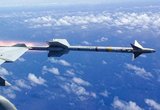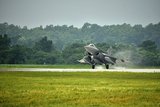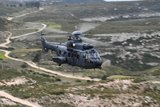India officially welcomed as an observer on Eurodrone programme
India now joins Japan as the second observer nation on the programme. (Photo: OCCAR)
India has now joined the Eurodrone programme for a MALE UAS as an observer, the Organisation for Joint Armament Co-operation (OCCAR) has announced.
Following its request to join the programme in August 2024, India then signed a joint statement with Germany in October 2024 to deepen defence ties, which included “recognising the shared goal of intensifying defence ties” between the two countries.
The Eurodrone MALE UAS is intended to conduct Intelligence, Surveillance, Target Acquisition and Reconnaissance (ISTAR) missions.
Launched in 2016, the UAS is being developed by Airbus, Dassault and Leonardo for France, Germany, Italy and Spain. A full-scale model of the Eurodrone was unveiled in 2018 at ILA Berlin.
According to OCCAR, a maiden flight of the UAS is planned for 2027, with the delivery of the Eurodrone to a participating partner state targeted by the “end of the decade”. It also views the programme as a “key pillar” to any Future Combat Air System (FCAS).
The total funding for the entire four-nation programme is a reported €7.1 billion (US$8.56 billion) to procure 60 Eurodrone platforms. According to Shephard Defence Insight Eurodrone’s estimated flyaway unit cost is $114.4 million.
Related Equipment in Defence Insight
More from Air Warfare
-
![France and India secure long-term defence roadmap built on shared production]()
France and India secure long-term defence roadmap built on shared production
Expanded fighter jet and missile production, next-generation engine cooperation and helicopter assembly deals have all been struck between the two countries, signalling a strengthening bilateral partnership between France and India.
-
![L3Harris begins work on South Korean AEW&C aircraft, eyes further international opportunities]()
L3Harris begins work on South Korean AEW&C aircraft, eyes further international opportunities
The company remains upbeat about its Indo-Pacific and European prospects, with its AERIS X system onboard a Bombardier 6500 proving an attractive option for air forces’ growing AEW&C needs.
-
![AI mission-autonomy software integration and partnerships see progress across CCA efforts]()
AI mission-autonomy software integration and partnerships see progress across CCA efforts
The successful integration of third-party mission autonomy in the US Air Force’s CCA programme and movement on Helsing’s Europa CA-1 timelines mark key milestones in the development of uncrewed aerial capabilities.
-
![Airbus Helicopters is deepening its European reach as NATO orders climb]()
Airbus Helicopters is deepening its European reach as NATO orders climb
Airbus has delivered more than 2,000 helicopters to nations across Europe, and continues to solidify its position at the heart of the region’s defence industrial base.






















